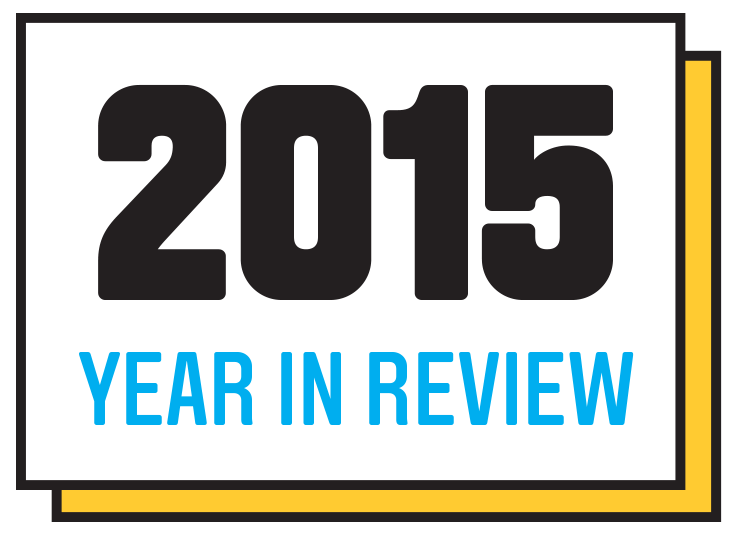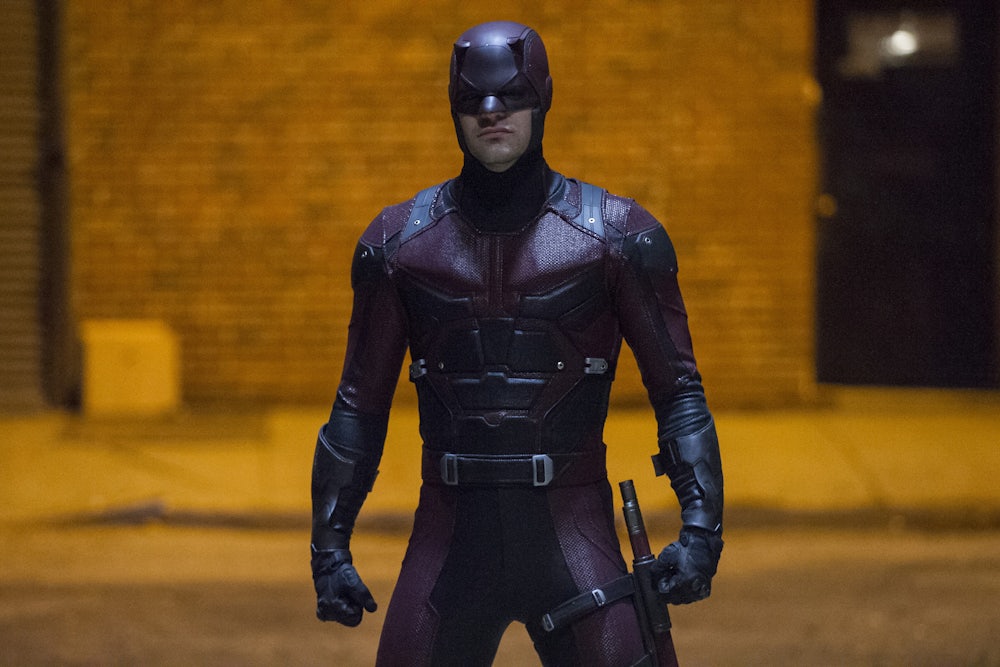
Cocaine was the drug of choice in Hollywood back in the 1970s, but these days the film and television industries can be more accurately described as addicted to superheroes. Entertainment about caped avengers and masked vigilantes continues to enjoy an unprecedented sway, dominating not just box offices but also studio planning for the foreseeable future. The Avengers: Age of Ultron and Ant-Man brought in $450 and $180 million respectively this year, and studios have promised no less than 29 more superhero movies in the next five years, ranging from sequels to well-established franchises (X-Men, Captain America) to mash-ups (Superman v. Batman) to plunges into nerd esoterica (Aquaman, Cyborg). Moreover, television remains home not just to several continuing series (The Flash, Arrow, Agents of Shield) but also many projects in development. In 2013, Netflix signed an ambitious sixty-episode agreement with Marvel for four separate series and a miniseries, and the first two, Daredevil and Jessica Jones, premiered this year. Superheroes tower not only over Hollywood but also over literature. It was announced this year that Ta-Nehisi Coates and Margaret Atwood would both be writing superhero series—Coates for Marvel’s Black Panther series, and Atwood a series called Angel Catbird for Dark Horse Comics—joining writers like Jonathan Lethem and Samuel Delany who have also tried their hand in the genre.
While superhero geeks might rejoice in the abundance of entertainment available, there’s no question that the many critics worry that the genre is playing an outsized role in Hollywood. The 2015 Academy Award for Best Picture went to Alejandro G. Iñárritu’s Birdman, a movie which owed much of its industry popularity to the way it confronted widespread anxiety about the pervasiveness of the superhero genre. Birdman tells the story of an actor, Riggan Thompson, played by Michael Keaton, who is trying to get out from under the shadow of the blockbuster superhero franchise he starred in when he was younger—an avian nod to Keaton’s turn as Batman in Tim Burton’s 1989 film.
As Thomson tries to remake himself into a reputable Broadway actor, a critic cruelly asks, “Are you at all afraid that people will say you’re doing this play to battle the impression that you’re a washed-up superhero?” Thomson denies the accusation, but Birdman has a far stronger sway than he admits, serving in the film as a kind of embodied alter ego, articulating Thomson’s fantasies and rages. There’s no escaping from superheroes, Birdman suggests, even though they are a blight on our culture.
Birdman might be said to deal with a niche problem: not many of us have to worry about being typecast by a multi-million dollar blockbuster. Still, the popularity of Birdman among Academy voters speaks to the concern that superhero and other action-adventure franchises have become too hegemonic, squeezing out the ability of Hollywood to tell more human scaled-stories. Writing in Grantland at the end of 2014, film critic Mark Harris used Birdman to discuss about the toxic prevalence of superhero films and franchise culture. “There is no escape anymore,” Harris argued.
We will never get away from Birdman, even as he threatens to poop all over everything. If movies have, for a century, been the repository of our dreams, and every generation gets the dreams it deserves, then ours is Rodin’s The Thinker reimagined as a superhero poised on the edge of the crapper, and the rest of us poised on the edge of…well, it may be a little extreme to invoke the abyss.
Overwrought perhaps, but Harris raises an undeniable problem. The superhero genre, in many of its articulations, is a fairly narrow one, trafficking in escapist power fantasies. To the extent that it becomes a dominant narrative mode, there is a severe limit to the stories we can tell. Certainly the major superhero films of the year—Avengers: Age of Ultron, Ant-Man, The Fantastic Four—were at best mildly diverting popcorn entertainment, with the occasional heavy-handed attempt at political significance.
With its emphasis on violence as a solution, the superhero genre often lends itself to simplistic solutions to complex problems. It is hardly an accident that in a New York Times Magazine interview, Ted Cruz named Rorschach as one of his favorite comic-book characters, the insane and uncompromising right-wing anti-hero from the graphic novel Watchmen. Campaigning in Iowa this summer, Donald Trump took a bunch of kids up for a helicopter ride. “Are you Batman?” a nine year old boy asked the real estate mogul. “I am Batman,” Trump replied. Trump is certainly as wealthy as Batman (a.k.a. billionaire Bruce Wayne), who in his latest incarnation in The Dark Knight Rises (2012) acted as a reactionary hero defending the wealthy of Gotham City from the envious rabble. Cultural critics like Marshall McLuhan and Walter Ong long ago argued that the superhero genre was injecting fascist ideas into popular culture, a critique that cannot be easily dismissed. As Ong argued in a 1945 article for the Arizona Quarterly, “The notion of a ‘superman’ is part of the herdist economy of the Nazi Third Reich….The Superman of the cartoons is true to his sources. He is not another Horatio Alger hero or a Nick Carter; he is a super state type of hero, which definite interest in the ideologies of herdist politics.”
Yet like all genres, superheroes can be put to a variety of uses. The two Marvel-produced Netflix series—Daredevil and Jessica Jones—were superior to their big screen counterparts because they focused on heroes who were more down to earth, tormented by the demons of every day life. Both series were set in slightly off-kilter, noir versions of New York, a shadow-drenched city that mirrors the psychological angst of the main characters, struggling with issues of abuse and self-sabotage.
If the superhero genre is going to stride over the cultural landscape like an overbearing colossus, it’s better to have ambitious and thoughtful examples of the form. Daredevil and Jessica Jones showed that superhero adaptations could be solid works of art and not the familiar crap Birdman drops from above.
